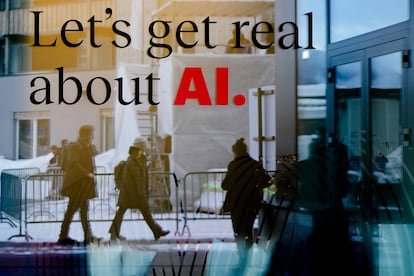Justice Department beefs up focus on artificial intelligence enforcement, warns of harsher sentences
Deputy Attorney General Lisa Monaco said the department will take into account how well a company is managing the risks of AI technology each time it assesses a corporate compliance program

The Justice Department is stepping up its focus on artificial intelligence, with officials set to warn on Thursday that companies and people who deliberately misuse the technology to advance a white-collar crime like price fixing and market manipulation will be at risk for a harsher sentence.
Deputy Attorney General Lisa Monaco will also say that the Justice Department will take into account how well a company is managing the risks of AI technology each time it assesses a corporate compliance program. Such a program is a set of policies and procedures designed to detect misconduct and to ensure that executives and employees are following the law.
The comments from the Justice Department’s No. 2 leader underscore the extent to which law enforcement officials are concerned about how the rapidly developing technology could be exploited, by foreign adversaries or by domestic entities, to harm the U.S. Monaco disclosed the policy moves one day after the Justice Department announced charges against a former Google software engineer accused of stealing AI trade secrets from the Mountain View, California-based company while secretly working with two China-based companies.
“All new technologies are a double-edged sword — but AI may be the sharpest blade yet. It holds great promise to improve our lives — but great peril when criminals use it to supercharge their illegal activities, including corporate crime,” Monaco will tell an American Bar Association conference of white-collar lawyers in San Francisco, according to a copy of her prepared remarks.
The Justice Department, Monaco says, has long used increased sentences for criminals whose behavior is seen as posing an especially serious risk to victims and the public. The same The principle applies to AI, she says.
“Where AI is deliberately misused to make a white-collar crime significantly more serious,” she says, “our prosecutors will be seeking stiffer sentences — for individuals and corporate defendants alike.”
“And,” she adds, “compliance officers should take note. When our prosecutors assess a company’s compliance program — as they do in all corporate resolutions — they consider how well the program mitigates the company’s most significant risks. And for a growing number of businesses, that now includes the risk of misusing AI.”
Sign up for our weekly newsletter to get more English-language news coverage from EL PAÍS USA Edition
Tu suscripción se está usando en otro dispositivo
¿Quieres añadir otro usuario a tu suscripción?
Si continúas leyendo en este dispositivo, no se podrá leer en el otro.
FlechaTu suscripción se está usando en otro dispositivo y solo puedes acceder a EL PAÍS desde un dispositivo a la vez.
Si quieres compartir tu cuenta, cambia tu suscripción a la modalidad Premium, así podrás añadir otro usuario. Cada uno accederá con su propia cuenta de email, lo que os permitirá personalizar vuestra experiencia en EL PAÍS.
¿Tienes una suscripción de empresa? Accede aquí para contratar más cuentas.
En el caso de no saber quién está usando tu cuenta, te recomendamos cambiar tu contraseña aquí.
Si decides continuar compartiendo tu cuenta, este mensaje se mostrará en tu dispositivo y en el de la otra persona que está usando tu cuenta de forma indefinida, afectando a tu experiencia de lectura. Puedes consultar aquí los términos y condiciones de la suscripción digital.








































